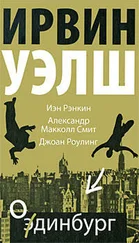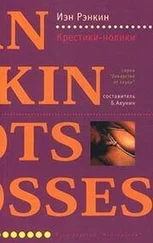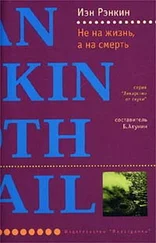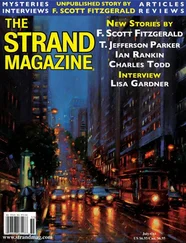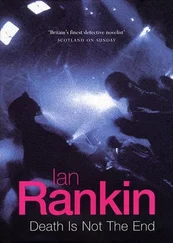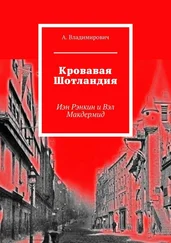‘I’m going somewhere with my mum,’ he lied. ‘I think we’re going to Edinburgh.’ He flushed immediately, ashamed of the whopper. He walked home slowly, kicking a stone the length of Main Street without it once rolling on to the road. He left the stone outside his gate and went indoors.
It was a good stone, and he would keep it. By the following morning he had forgotten it, and when he finally did remember a few days after that the stone had disappeared. He found another, better one, and thus had started his collection of good stones.
He thought about his mother’s hair now as he walked up the street from the Soda Fountain. Black and silver, hanging in thick threads. Black night shot through with wisps of moonlight. He had described it like that in one of his English essays. He liked English, and especially liked writing essays. He got good marks for them. He had been rather annoyed when his mother had started going out with his English teacher, Mr Wallace. Now people would think that any future good marks were due to that and not because he was good at writing things. He had seen Mr Wallace stroke his mother’s hair as if checking that it were real.
‘Don’t pull them out,’ his mother used to say if Sandy’s curious fingers lingered over the silvery threads. ‘They just come back in thicker than ever.’ When she had said that he had thought that maybe she was a witch after all. She was something magical that talked on bad days with the long dead and sang sacred songs with a shawl strewn over her lap in the small back room where the memories were kept. Some warm Sundays, if he was in his bedroom with the door a little ajar, doing his homework, he would hear her voice lullabying spirits in that back room. Her hair would be hanging around her in a manner that caused Sandy to stir uneasily in his adolescent body. He would chew on his ballpoint pen and stare at the wall. There were no exams important enough to be worth studying for on days like that, days which would be emerging again soon by the look of the buds on the trees, though there was a coolness to the sun still, like porridge watered and milk-soft.
He clambered over a wall and skirted the edge of a field. His mother would be expecting him home, but she was not anxious these days if he was a bit late. He was fifteen and could stay out till after ten o’clock if he liked; could say that he had been visiting a friend without really having to lie. He had some friends at school — Mark, Clark, Colin — but he could not visit them comfortably in their homes. Sometimes they flushed as they tried to lie an explanation to him as to why he could not actually enter their houses. He was old enough now to shrug off most of the resentment. He knew that it was the old-fashioned stubbornness of the parents that was to blame, that kept him waiting at street corners, hands slouched low in his pockets. He knew that some of his friends even had to lie to their parents in order to go out with him. Fuck that. Fuck that. Could he dye his hair and change his mother into something else? That was it all right. That was it. His shoes stamped deeper into the soft earth as he trudged towards his destination. At least he could be sure of being accepted there without fear of embarrassment. Even if it was dangerous. Even if someone saw him and told his mother. Did anyone care about him that much or mind him that much? He doubted it.
On the golf course to his left some men were shouting and hitting the ball off the first tee with a satisfying swish. Sandy might want some clubs for his birthday in September, a whole summer away. If he had a job he could save the money to buy them. He had only to wait until Christmas. He could not leave school until Christmas. Then he would buy everything on his list: golf clubs and motorbike and all. He would get a job in Glenrothes if he could, and one day he might move away from the area. His mother wanted him to stay on at school to do Higher exams. Where was the future in that? The only future was to see yourself at the first tee with your half-set or even full set of clubs, plus all the extras. Teeing off, the ball going swish into the sky like a tiny satellite. That was the future. He climbed another wall, higher than the first, and was in the garden of an empty mansion.
Her grandmother had made the most beautiful shawls, crocheted intricacies of nature. She placed them back in the chest. Her mother too had worked with wool. A jersey remained, as fresh as washing on a line. She put it back, patting it neatly into place on top of the shawls. There was still a good six inches of space to the brim of the chest. She could not hope to fill that space, for her own hands were out of touch with delicacy. They could never know the peace of mind that comes with patterns. She closed the heavy lid of the brass chest and sat down on it, humming softly. This room smelled damp even in the spring and summer. In winter it was an ice-box, unusable. No electric fire could take anything but a superficial chill from the air, leaving still the depth of the room’s iciness, a depth beyond mere physical presence. She looked at her watch. He would be home from school soon, her son, her only child, her bastard. Born out of shame... But what was the use in thinking about all that? She had spent too long thinking back to it. She rose from the chest and started downstairs, holding on to the banister with one of her long, awkward hands. She felt weak today. Her period was coming on. She would have to be careful not to snap at Sandy. He was always in a sulk these days. His age, she supposed. He was either out for much of the night, or else sat in his room with the record-player blaring, and even when he deigned to slip downstairs around ten o’clock he would say that he had been studying. What could she say to him? She fingered her silver-dark hair. If only her mother were here; she could talk to him, and he would listen. She had held him spellbound with her long, rambling stories right up until the day before she had died. Sandy had cried at his grannie’s funeral. Would he cry at hers? Oh, of course he would. She was being stupid again.
She began to check the pots on the cooker, stirred one of them and replaced its lid. Everything was fine, but where was he? It looked as if he was going to be late again. She sighed, but set the table anyway, making sure to put out the tomato pickle to which he had so taken recently. She had found a recipe for it in one of her magazines and would make some of her own soon. She sat at the table and let her fingers dance over the cloth. Dance to your daddy, my little laddie. She felt most comfortable late in the evening when, Sandy in bed reading and the lights out and the fire still glowing brightly, she would speak to her mother and sometimes even her father. There was comfort in speaking to the dead, and it showed that you had not forgotten them. How could people forget their dead? Yet they seemed to. After a while, the funeral a few weeks past, they would just stop talking about them, and all the traces of grieving would leave their faces so that the living could begin again in earnest. That was unwise. She knew that that was unwise. You had to keep their memory burning brightly and then they did not really die, then you could speak to them at their graveside or in your own living room. You had, in effect, lost nothing.
He’s too late now. He’s not coming. Probably he’s down at the corner with his friends and the girls who hang around with them. He still blushed when she mentioned the possibility of there being a special girl in his life. He still shook his head. He was a fine-looking boy. He would not stay innocent for much longer. Fifteen. Fifteen. That’s how old she had been... But what’s the use? No bloody use at all. Here she was, nearly thirty-two, having done nothing with her life other than bring up Sandy. She knew that she could not put into words how important that made him to her. He was everything, and she thanked God that the townspeople had taken to him at last and let him become one of them. She had always resented their shunning her. She still felt bitter sometimes. The years had been hard. They could have been harder, yes, but they would have been a lot easier had she been accepted and not made subject to stupid rumours about witchcraft and the like. She felt like sticking pins in the whole lot of them. If only they would accept her, or even cast her out altogether. But no, instead there were the looks and whispers, the snide jokes. They would go no further. If she pressed them, they would tell her that they were merely having a bit of fun, no harm meant. They were cowards; neither cold nor hot. She found them despicable, and yet this was still her town, and these were still her people. Some of them were reasonable people, of course. The minister was very nice, and Andy made all the difference. Would he visit her this evening? She could not remember having arranged anything, but he might turn up anyway. Her stomach began to growl.
Читать дальше




